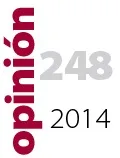The Middle East Maelstrom

Francis Ghilès
Associate Senior Researcher, CIDOB
July,1, 2014 / Opinión CIDOB, n.º 248 / E-ISSN 2014-0843
During the surge of 150,000 US troops into Iraq which George W. Bush’s administration ordered in 2006 to quell the sectarian violence, the then senator Joe Biden argued that the only way to stem the bloodshed was a soft partition of the country into three highly decentralised blocks, Sunni, Shia and Kurd.
The US intervention in Iraq just over a decade ago unleashed a power struggle that quickly took on Sunni-Shia overtones and is playing out across the Middle East. The Sunni dominated regime of Saddam Hussein was replaced, through elections, by a Shia dominated government, the first time the Shia have held sway in Bagdad for more than a millennium. Iran – dammed by the former US president for belonging to the Axis of Evil, gained huge influence in Iraq after the fall of the former Iraqi dictator.
Quassem Suleyman, Commander of the Iranian Revolutionary Guard Corps (IRGC) is a regular, though unannounced, visitor to Bagdad, as he is to Damascus, since even before the 2003 US led invasion. It is hard to overestimate Suleyman’s role in Iraq (as indeed in Syria). Fiercely loyal to Ayatollah Ali Khamenei, now 57, he was only 20 when he first joined in the war Saddam Hussein launched against his country in 1980 – a war which became the longest conventional war of the last century and left more than one million dead on both sides of its eight bloody years.
Estimated to be several thousand strong, the Quds forces carry out a range of sensitive functions: intelligence, special operations, arms smuggling and attacking its enemies, Israel foremost. It is Iran’s long arm. Suleyman’s strategic commitment to Iraq and the preservation of both Iranian and Shia political power is deeply entrenched.
The Kurds for their part have occupied Kirkuk and maybe close to achieving what their forebears were denied in the great carve up of the Middle East decided by the British and the French in the wake of the first world war – an independent state. How such a new state might play out in Iran and Turkey which both have strong Kurdish communities is anybody’s guess. It is best to remember however that the Kurdish Peshmergas are hardened fighters and that they will guard the newly found freedom of Kurdistan (still legally part of Iraq) province with determination. It helps that the region has oil resources and that Jalal Talabani, the leader of the Patriotic Union of Kurdistan (UPK), holds the presidency in Iraq.
The US hawks such as Dick Cheney and Donald Rumsfeld, who worked with the former US president, very much wanted to be the actors of history. An adviser to Rumsfeld, Scott Libby, told a US academic specialist of Iraq who was explaining to him that a free vote in Iraq would hand power to the Shia and increase Iranian influence “you understand history, we make it”. Such hubris and arrogance helped create an arc of instability across the Middle East –the neo-cons succeeded beyond their wildest dreams. Their policy ended handing more power to Iran and aroused the deep suspicions of Saudi Arabia and the Gulf monarchies, always fearful of Shia Islam and Iranian strategic ambitions.
The Iraq crisis has, by one of those unexpected twists which the region has a habit of springing on outsiders who meddle in its history without understanding its complexity, made bedfellows of the US and Iran. This may be a marriage of convenience as both sides seek to thwart the sweeping advance of the hard line al Qaeda offshoot ISIS. But their long term strategic interests diverge. The US wants to see inclusive democracy embedded in Iraq, or so it claims, whereas Iran is focused on bolstering its positions vis a vis the Sunni monarchies of the Gulf and Saudi Arabia. Cooperation carries its own risks: the US is reluctant to hand any leverage to Iran during the negotiations under way over Tehran’s nuclear programme. Any US-Iran cooperation will confirm to a suspicious Riyadh that Washington might be abandoning its traditional allies. Some observers however are wondering whether US and Iranian interests might be converging. Were the Iranian and US presidents to succeed in selling a nuclear deal (all but technically agreed) to their respective political hawks domestically, we might witness Iran’s return to the game of international diplomacy. Without Iran, no lasting solution to the bloody mess in Syria exists, Hezbollah in Lebanon cannot be tamed and the west will never get the support it needs in Afghanistan if it wishes to preserve a minimum of stability as its winds down it military presence.
Europe seems to forget that private Saudi money has fuelled the forces of radical Islam in many Arab counties and across North Africa for more than a generation and encouraged the hard line Salafi groups, developments which have been to the detriment of western ideas and influence. It often helps to delve into a nation’s history to understand modern politics and no where is this more true than in the Middle East. No book better than Kader Abdolah’s The King (Cannongate publishers 2014), which reads like a fairy tale and is deceptively simple in its storytelling explains Iran’s attempts at reform and fraught relations with the west, a more convincing better introduction to the game of chess being played today across a region that sits on the fault line of Muslim, Christian and Jewish cultures and religions.